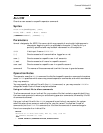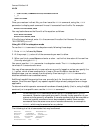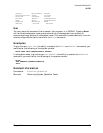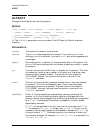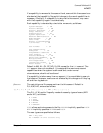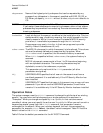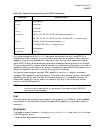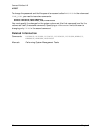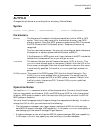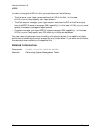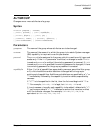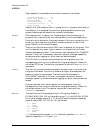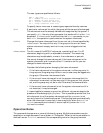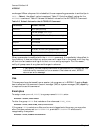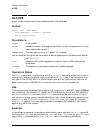
Chapter 2 55
Command Definitions A-B
ALTFILE
ALTFILE
Changes the attributes of an existing file or directory. (Native Mode)
Syntax
ALTFILE[ FILE=] filename [ ] ;OWNER=ownername] ] [ [ ;GROUPID=] POSIXgroupname]
Parameters
filename The filename of the object to be altered, specified in either MPE or HFS
syntax. The filename may name a file, hierarchical directory, root, MPE
group or account. Note that MPE groups or accounts can ONLY be named
via HFS (Hierarchical File System) syntax. Temporary files are not
recognized.
This is a required parameter. You may not use wildcards, back-reference a
file equation, or name a system-defined file such as $NULL.
If the filename is in MPE syntax and it has a lockword, do NOT include the
lockword on the command line, or you will get an error.
ownername The name of the user who will become the owner (UID) of filename. This
ownername must already exist on the system. Default is for the UID of the
file to remain unchanged. Note that no qualification is done on this name;
it must be fully specified. To have the ownername upshifted, enclose it in
quotes.
POSIXgroupname The name of the POSIX group (GID) that this file will belong to. This
POSIXgroupname must already exist on the system. You cannot use this
parameter to change the GID of an MPE group or account. Default is for
the file to retain its previous GID. To have POSIXgroupname upshifted,
enclose it in quotes.
Operation Notes
You use the ALTFILE command to alter a file's characteristics. Currently the attributes
that you may modify are the owner (UID) and POSIX group (GID) for a file, hierarchical
directory, MPE group or account, with the restriction that you may not alter the GID for
MPE groups or accounts.
You must have the appropriate privilege to change the requested attribute(s). In order to
change the UID of a file, you must be one of the following:
• The file's account manager (your logon account matches the GID of the file and you
have MPE/iX account manager (AM) capability). In this case, ownername must specify a
user belonging to the account manager's logon account.
• A system manager (a user who has the MPE/iX system manager (SM) user capability).
In this case, ownername may specify any user existing in the user database.



